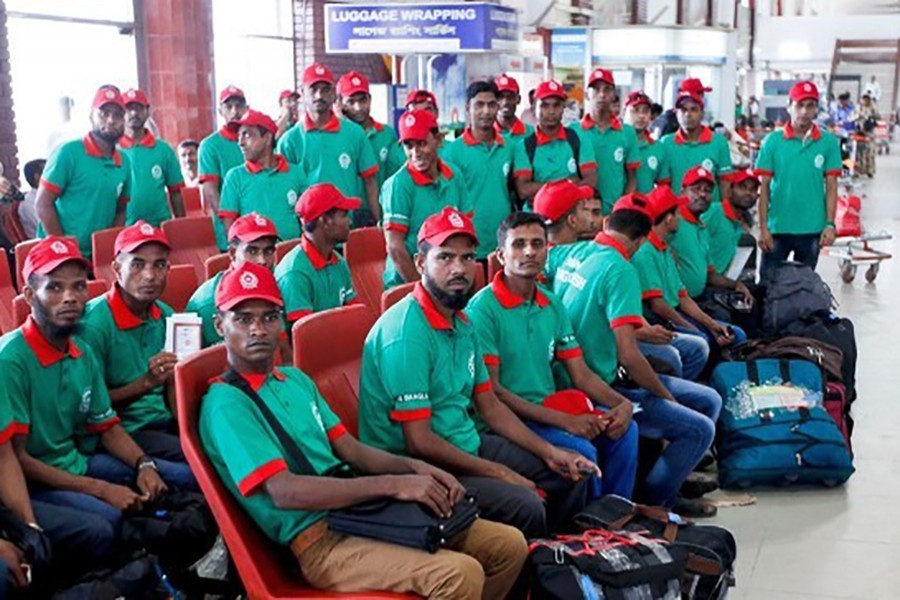The first batch of 30 workers left Dhaka for Malaysia with jobs on Tuesday, as the government's recruitment agency has started sending workers to that country.
United Plantation (UP), one of the Malaysia's largest plantation companies, hired the workers at zero migration cost. A flight of US-Bangla Airlines transported the workers in the morning, officials confirmed.
Malaysia will hire 10,000 workers from here through the Bangladesh Overseas Employment and Services Limited (BOESL) under the 'Special One-off Recruitment Project' to meet its demand of foreign workers in different sectors, especially in plantation.
The BOESL has sent workers to the Southeast Asian country for the first time. It has so far received demand notes for about 795 workers from six companies.
Of them, 775 workers have been selected randomly from the Bureau of Manpower Employment and Training (BMET) database and job fairs.
Noor Ahmed, deputy general manager at the BOESL, told the FE that 30 workers went to Malaysia with jobs on the day. Another 60 workers would also fly for the country within next two days.
"I hope the outflow of workers to the job destination will continue in the coming days," he added.
The migration cost for each worker is Tk 45,920, but the cost will be borne by employers, according to a press release of the Ministry of Expatriates' Welfare and Overseas Employment.
Monthly basic wage of each worker is MYR 1,500 (approximately BDT 34,000).
Malaysia, a vital manpower market, signed a fresh deal with Bangladesh on 19 December 2021 for hiring workers for its different sectors.
Under the deal, Malaysia allowed recruitment of Bangladeshi workers in sectors like plantation, agriculture, manufacturing, mining, construction, and household services.
An estimated 500,000 workers will be hired by Malaysia in the next five years, according to the ministry.
But outflow of local workers through private recruiters is still slow due to different complexities, including alleged syndication in the recruitment process.


